Not all drinks are as innocent as they seem. From sugar-packed “health” teas to sneaky diet sodas, some of the beverages we reach for daily can quietly derail our wellness goals. But making smarter choices doesn’t mean sacrificing flavor or satisfaction. In this guide, we’ll uncover 11 popular drinks that are better left behind—and 11 healthier, crave-worthy alternatives to sip instead. Whether you’re looking to boost energy, stay hydrated, or simply feel better, these easy swaps can make a real difference. Your body will thank you—one refreshing sip at a time. Let’s take a closer look.
1. Alcohol

Alcohol’s effects go far beyond the immediate buzz. Even moderate drinking impacts sleep quality, reducing REM sleep and leaving you less rested despite spending hours in bed. Your liver bears the brunt of processing alcohol, diverting its resources from other detoxification duties. Regular consumption can lead to fatty liver disease even in non-heavy drinkers.
Meanwhile, alcohol’s empty calories (about 7 per gram) contribute to weight gain, especially around the midsection. The initial relaxation effect often reverses hours later, potentially worsening anxiety and depression long-term. Despite certain heart health claims about red wine, the overall evidence suggests limiting alcohol for optimal wellbeing.
2. Sugary Sodas
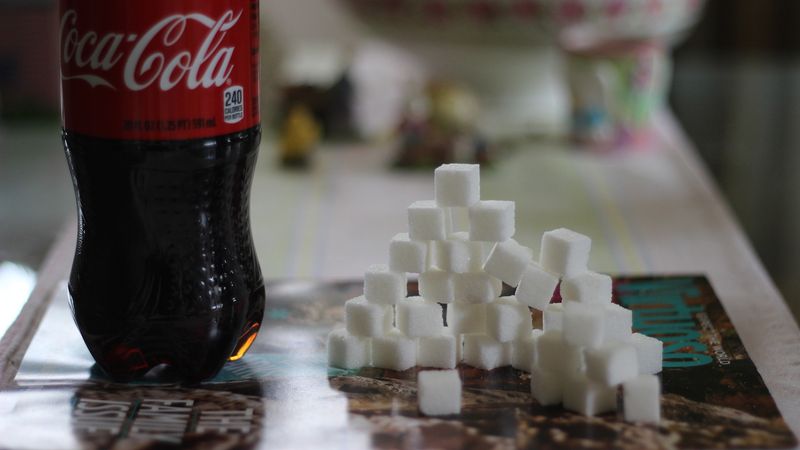
Regular sodas are basically liquid candy in disguise. A single 12-ounce can packs about 10 teaspoons of sugar—more than your entire daily recommended limit! The sudden blood sugar spike from these fizzy drinks can lead to energy crashes, mood swings, and increased hunger. Over time, the excess sugar contributes to serious health problems like obesity, type 2 diabetes, and heart disease. Your teeth suffer too, as the acids and sugars combine to erode enamel and cause cavities. That momentary sweetness simply isn’t worth the lasting damage to your body.
3. Energy Drinks
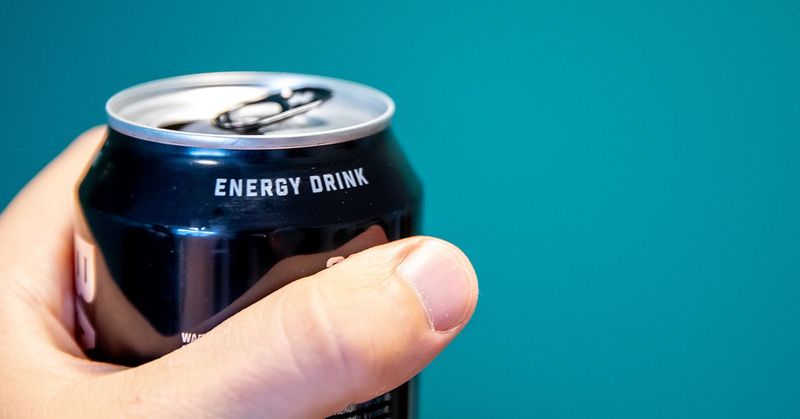
That vibrant can promising extreme energy comes with extreme consequences. Energy drinks combine massive caffeine doses with sugar amounts that would make candy look healthy. The caffeine and other stimulants can trigger racing heartbeats, anxiety, and insomnia. Some energy drinks contain as much caffeine as 5 cups of coffee!
Your blood pressure spikes temporarily, putting extra strain on your cardiovascular system. Young people are especially vulnerable to these effects. The FDA has investigated multiple deaths potentially linked to energy drinks, making that quick energy boost a dangerous gamble with your health.
4. Sports Drinks
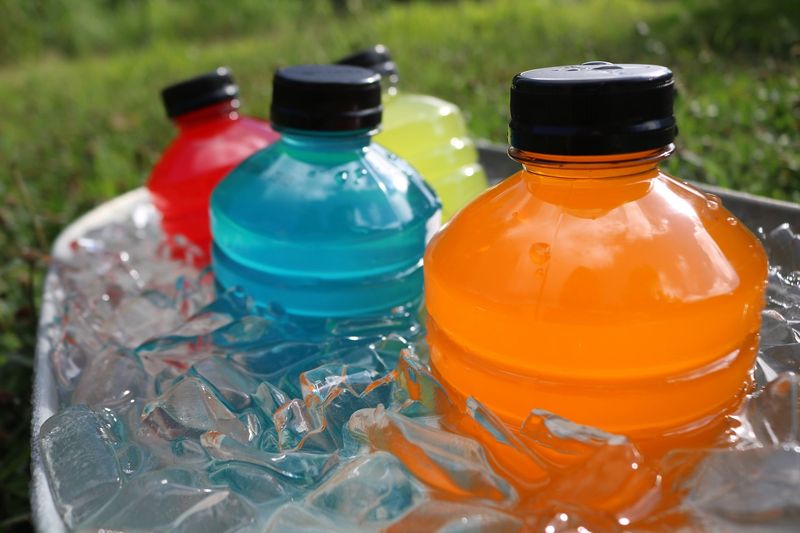
Unless you’re exercising intensely for over an hour, sports drinks are mostly unnecessary sugar water. These colorful beverages were designed for serious athletes who need to replace electrolytes lost through heavy sweating. For casual gym-goers or everyday activities, the extra calories (about 150 per bottle) and sugar (around 9 teaspoons) outweigh any potential benefits. Your body simply doesn’t need that electrolyte boost during regular activities. The artificial colors and flavors add zero nutritional value while potentially triggering reactions in sensitive individuals. Save these drinks for marathon days, not movie nights.
5. High-Calorie Caffeinated Drinks
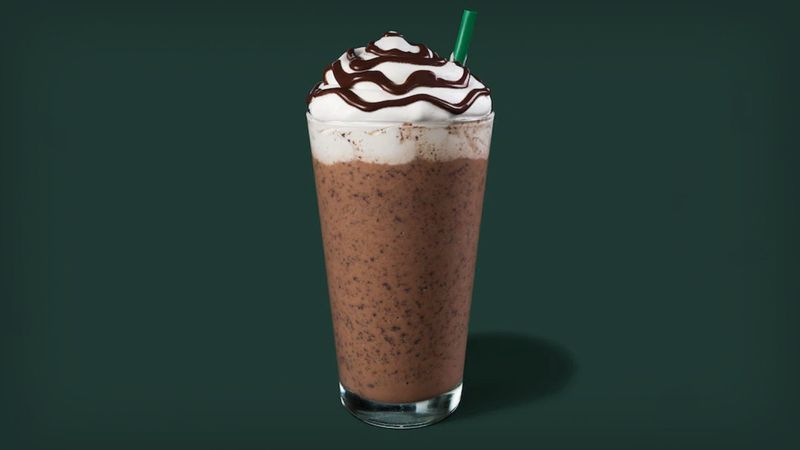
That caramel-drizzled, whipped-cream-topped coffee concoction is more like ice cream than actual coffee. Many specialty coffee drinks contain a shocking 400-500 calories and up to 16 teaspoons of added sugar per serving. The fat content isn’t much better, with some drinks packing more saturated fat than a cheeseburger.
All those sweet syrups, flavored creamers, and toppings transform a potentially healthy beverage into a nutritional disaster. Regular consumption can lead to weight gain and blood sugar issues while training your taste buds to crave intensely sweet flavors. Your wallet takes a hit too, with some drinks costing $5-7 daily.
6. Artificially Flavored Waters
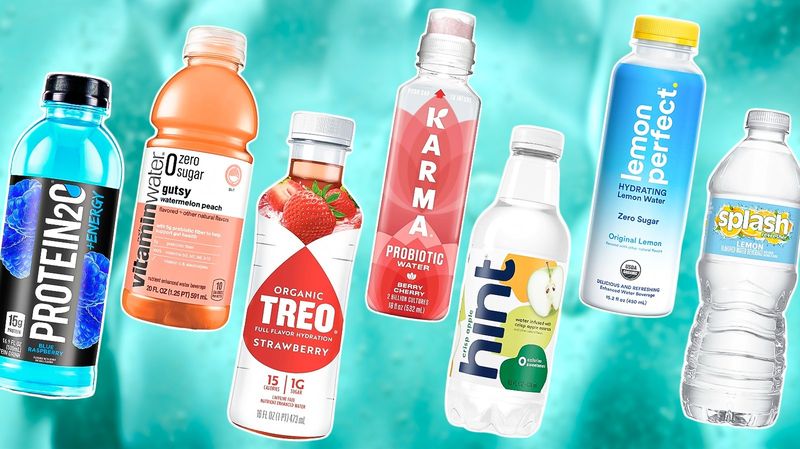
Those colorful “vitamin” and flavored waters often contain more artificial ingredients than actual nutrients. Many brands use artificial sweeteners, colors, and preservatives that offer no health benefits while potentially causing digestive issues. The “vitamin-enhanced” marketing is mostly hype—the small amounts of added vitamins are poorly absorbed compared to those from whole foods. Some varieties even contain unexpected caffeine or herbal stimulants not clearly disclosed on the front label. The artificial sweeteners can alter gut bacteria balance and potentially increase cravings for sweet foods. For truly healthy hydration, you’re better off adding real fruit to plain water.
7. Store-Bought Smoothies
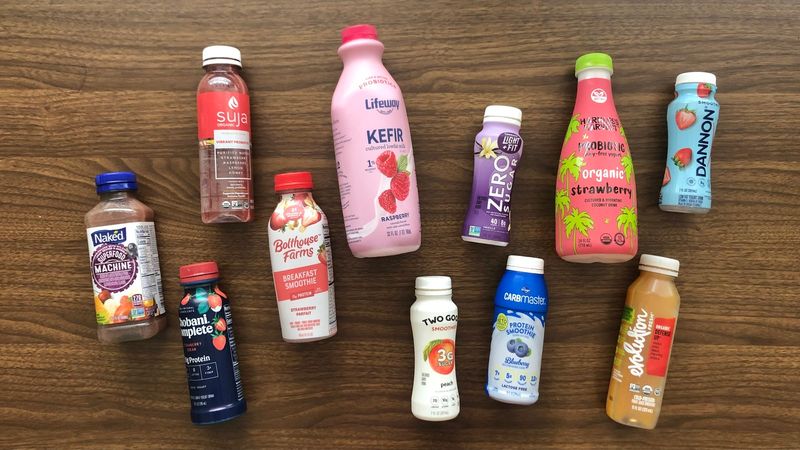
Pre-made smoothies often hide behind a health halo while harboring surprising amounts of sugar. Many commercial versions contain fruit juice concentrates, added sugars, or excessive fruit with minimal vegetables or protein. The portion sizes compound the problem, with some bottles containing what should be 2-3 servings but marketed as single-serve.
Without adequate protein or fiber, these drinks can cause blood sugar spikes followed by energy crashes. Some varieties contain as much sugar as a candy bar—up to 50-60 grams per bottle! The processing also diminishes many of the nutrients you’d get from fresh ingredients, making them far less beneficial than homemade versions.
8. Sweetened Teas
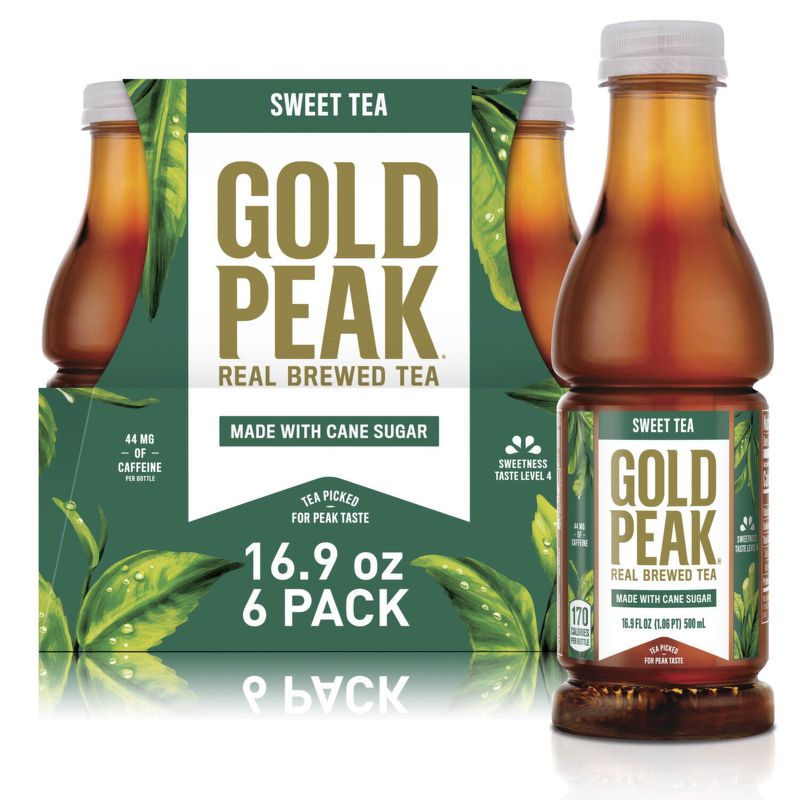
Those convenient bottled teas rarely resemble actual brewed tea. Many contain more high-fructose corn syrup than tea, with some varieties packing up to 9 teaspoons of sugar per bottle. The minimal tea content means you’re missing out on the antioxidants and beneficial compounds found in freshly brewed versions. Most bottled teas contain such small amounts of actual tea that the health benefits are negligible. The citric acid added for flavor preservation can damage tooth enamel over time. Meanwhile, the excessive sugar contributes to inflammation and weight gain while providing empty calories without nutritional value.
9. Prebiotic Sodas
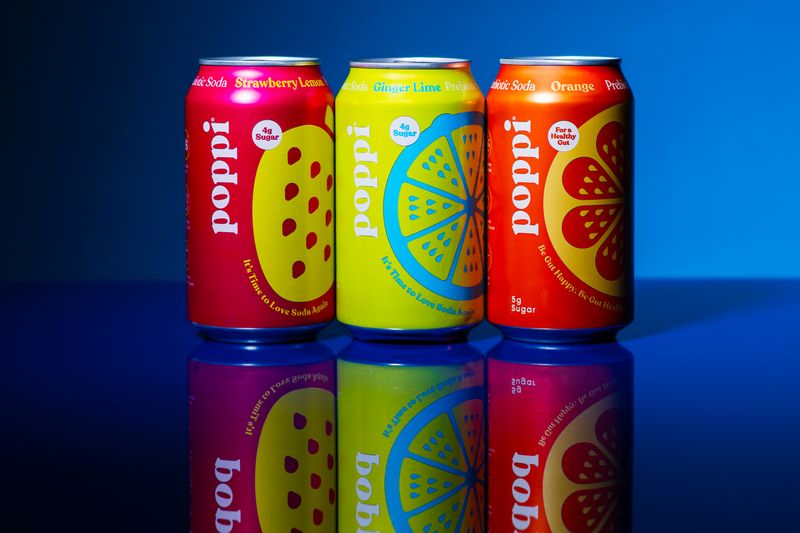
Prebiotic sodas might sound like a healthy upgrade, but many contain problematic ingredients. These trendy drinks often add fiber like inulin or chicory root extract to regular soda formulations, claiming gut health benefits. For many people, these added fibers cause uncomfortable bloating, gas, and digestive distress—especially when consumed in liquid form.
The rapid fermentation in the gut can create more issues than benefits. Many still contain significant sugar or artificial sweeteners, negating potential benefits. While prebiotics themselves are beneficial when consumed naturally through foods, these manufactured beverages often represent marketing hype rather than genuine health innovation.
10. Diet Sodas
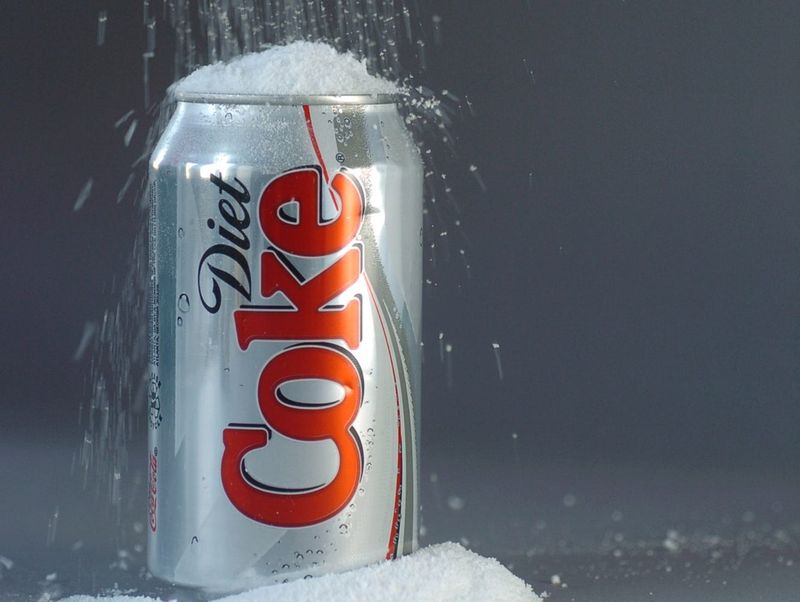
Diet sodas might have zero calories, but they come with other concerning health effects. Artificial sweeteners like aspartame, sucralose, and saccharin can alter gut bacteria balance and potentially affect metabolism. Research suggests these drinks may actually increase cravings for sweet foods by confusing your brain’s reward pathways. Your taste buds get the sweet signal without the calories, potentially leading to increased hunger later. The acidic nature of these beverages can still damage tooth enamel, despite lacking sugar. Some studies have found associations between diet soda consumption and increased risk of stroke, dementia, and metabolic syndrome.
11. Fruit Juice
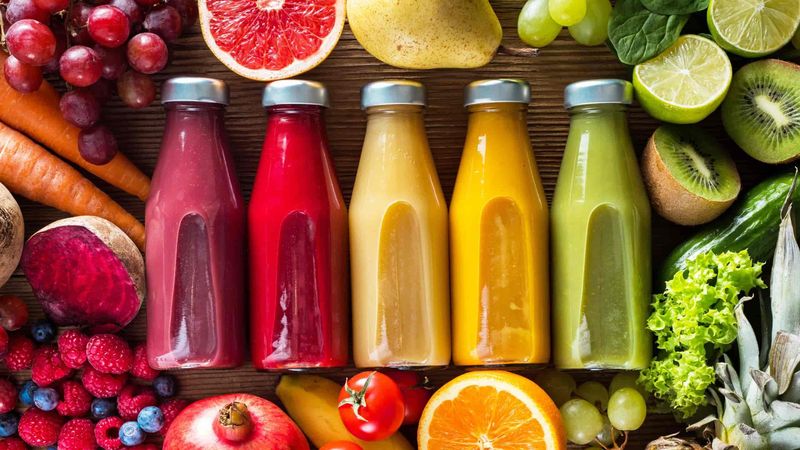
Even without added sugar, 100% fruit juice contains as much natural sugar as soda. A cup of apple juice packs about 24 grams of sugar—the equivalent of 6 teaspoons—without the fiber that whole fruit provides to slow sugar absorption. The rapid sugar hit can spike blood glucose levels, especially on an empty stomach.
Without fiber to create fullness, it’s easy to consume excessive calories through juice without feeling satisfied. The processing and pasteurization also diminish some nutrients while concentrating sugars. While occasional small servings provide vitamins, treating juice as a daily beverage can contribute to weight gain and metabolic issues.
12. Water
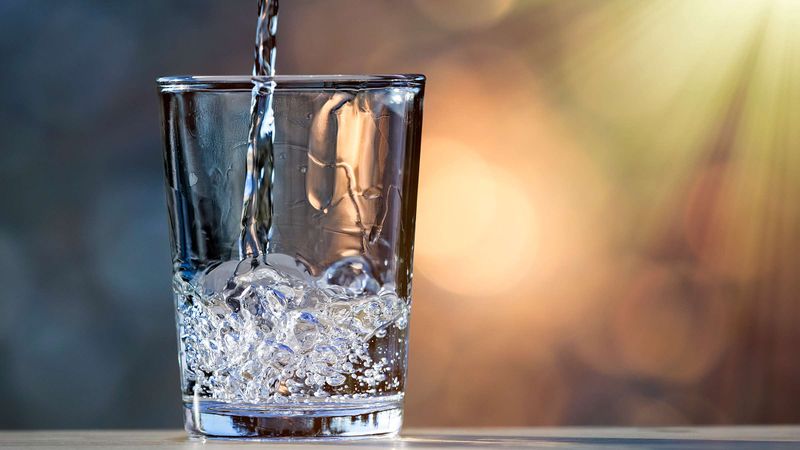
Water might seem boring compared to flashier drinks, but it’s your body’s best friend. This zero-calorie wonder helps transport nutrients, regulate temperature, and flush out toxins without any downsides. Feeling tired? Dehydration is often the culprit. Even mild fluid loss can drain your energy and cloud your thinking. Water helps maintain proper blood volume, keeping oxygen flowing to your muscles and brain. Make it more exciting by adding fresh fruit slices, cucumber, or herbs. Sparkling water can satisfy that craving for carbonation without the sugar hit of soda.
13. Green Tea
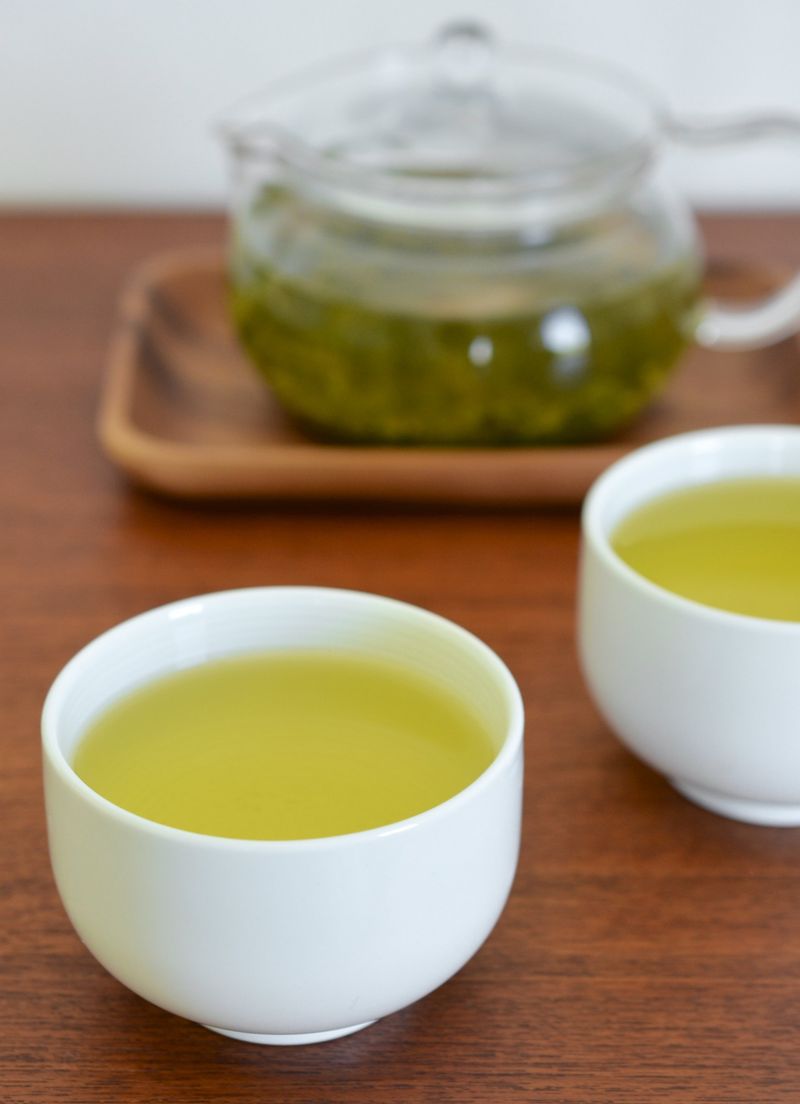
Green tea offers gentle energy without the crash. Its moderate caffeine content (about 1/3 of coffee) provides mental alertness while special compounds like L-theanine create a calm focus rather than jitters. The real superstars are catechins, particularly EGCG, which fight inflammation and may help prevent chronic diseases. These powerful antioxidants neutralize harmful free radicals that damage cells. Research suggests regular green tea drinkers have lower risks of heart disease and certain cancers. Brewing tip: Use water just below boiling (175°F) and steep for 2-3 minutes to avoid bitterness while maximizing health benefits.
14. Vegetable Juice
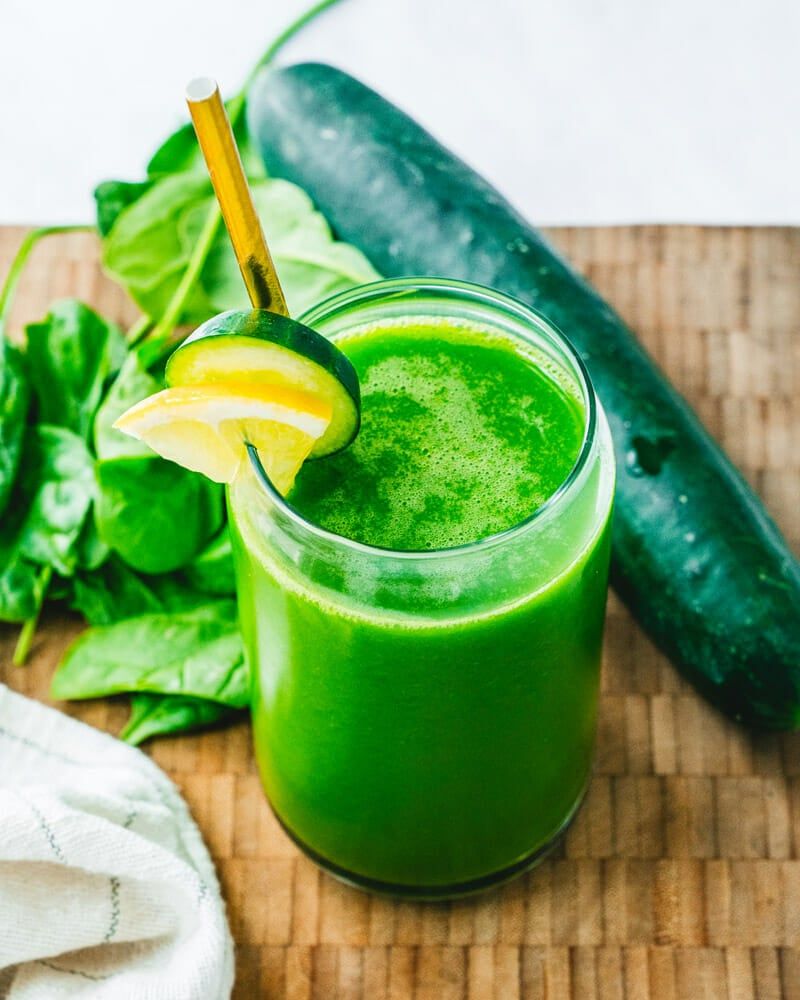
Vegetable juices pack impressive nutrition without the sugar overload of fruit juices. A single glass can deliver several servings of vegetables, flooding your body with vitamins, minerals, and plant compounds that support immunity and cellular health. Low-sodium versions help avoid the excessive salt found in many commercial brands.
Beets, carrots, celery, and leafy greens make particularly nutritious bases. The antioxidants in these colorful vegetables help fight oxidative stress and inflammation. For maximum benefits, choose cold-pressed or homemade varieties that preserve heat-sensitive nutrients. Add a splash of lemon to brighten the flavor naturally.
15. Kombucha
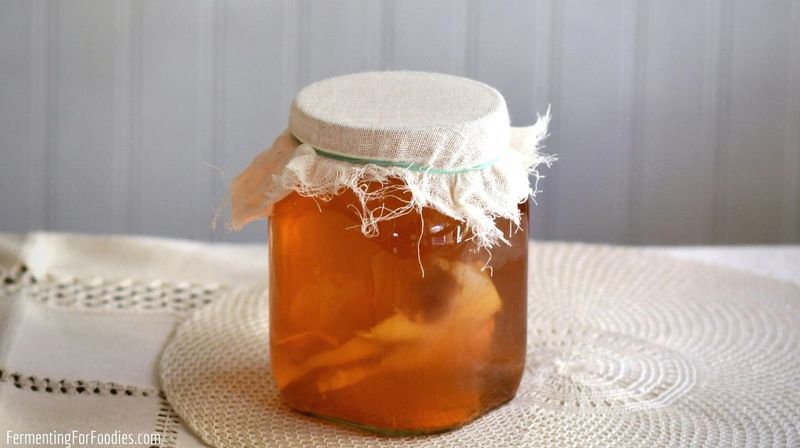
Kombucha offers a tangy, fizzy alternative to soda with actual health benefits. This fermented tea contains live beneficial bacteria that support your gut microbiome, potentially improving digestion and immune function. The fermentation process creates natural carbonation along with small amounts of acids that give kombucha its characteristic tang.
While it does contain some sugar, much of it gets consumed during fermentation, resulting in a lower-sugar finished product. Look for varieties with less than 5g of sugar per serving, or brew your own at home for complete control over ingredients. The slightly vinegary taste might take getting used to, but many find it refreshingly complex.
16. Sparkling Water
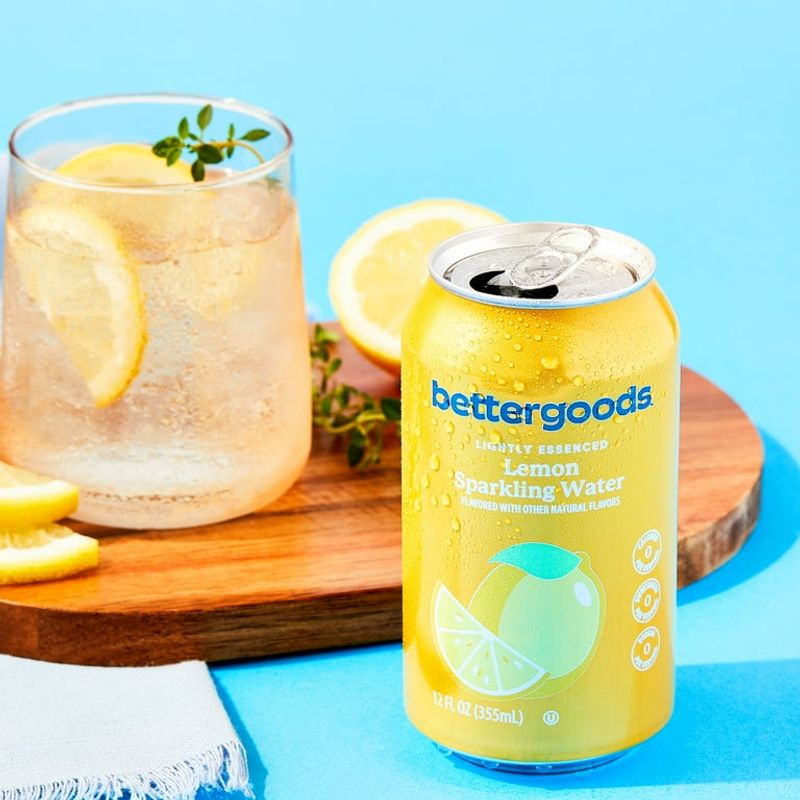
Sparkling water satisfies the craving for something bubbly without the downsides of soda. The carbonation can help you feel fuller and more satisfied between meals, potentially helping with weight management. Varieties infused with natural flavors (not artificial sweeteners) offer taste without calories or chemicals. Look for options that list only carbonated water and natural flavors or fruit essences on the ingredient list. While some worry about carbonation affecting bones or teeth, research shows that plain sparkling water is just as hydrating as still water and doesn’t significantly impact bone density. The mild acidity is far less concerning than that of sodas.
17. Low-Fat Milk
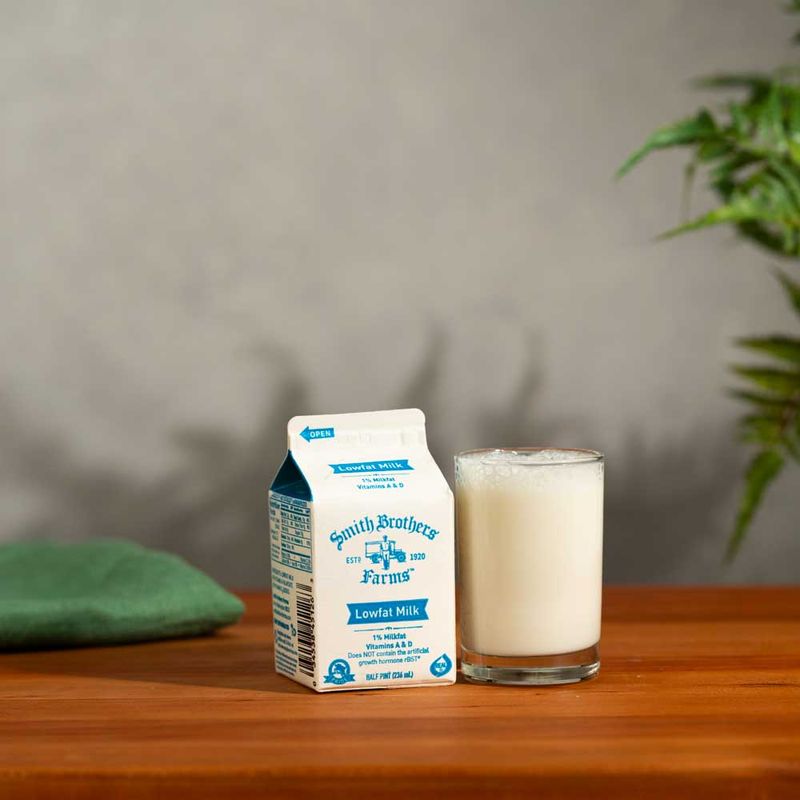
Low-fat milk delivers impressive nutrition in every sip. Each cup provides about 8 grams of high-quality protein that helps build and repair muscles, along with 30% of your daily calcium needs for strong bones.
Unlike plant-based alternatives, cow’s milk naturally contains vitamin B12, which supports nerve function and energy production. It’s also one of the few dietary sources of vitamin D, essential for calcium absorption and immune function. The protein and fat content helps slow digestion, creating longer-lasting fullness than sugary drinks. For those who tolerate dairy well, milk offers a nutrient-dense beverage option that supports overall health.
18. Green Smoothies
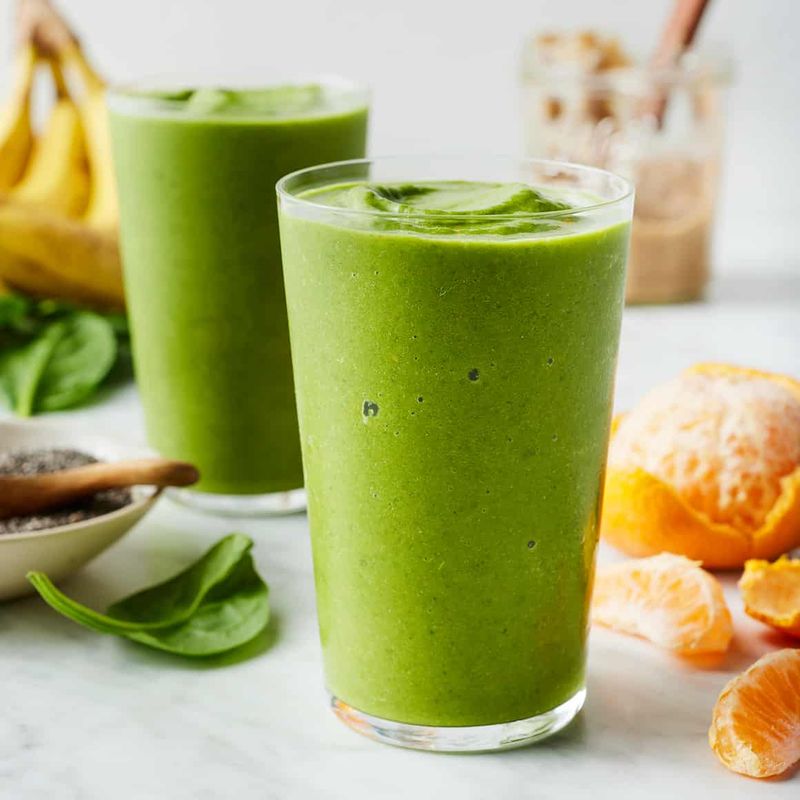
Green smoothies combine the best of both worlds—vegetables’ nutrition with fruit’s natural sweetness. Unlike juices, smoothies retain the beneficial fiber that helps regulate blood sugar and supports digestive health. The leafy greens provide folate, vitamin K, and antioxidants without overpowering the taste. Adding a protein source like Greek yogurt or plant protein powder turns a simple smoothie into a complete meal replacement that keeps you satisfied for hours. Make them at home to control ingredients and avoid the added sugars found in commercial versions. A good ratio is 2 parts greens to 1 part fruit for balanced nutrition without excessive sweetness.
19. Bone Broth
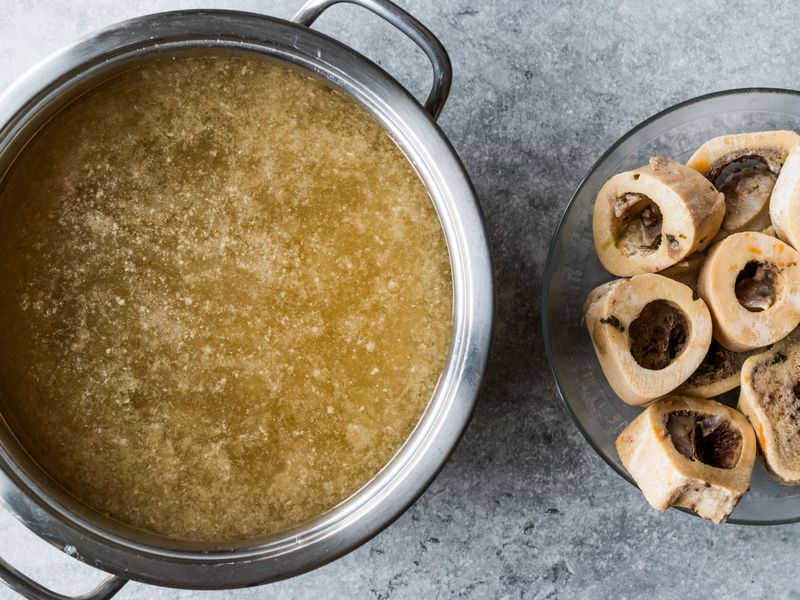
Bone broth offers unique benefits you won’t find in other beverages. The slow-simmering process extracts collagen, gelatin, and minerals from animal bones, creating a nutrient-dense liquid that supports joint health and digestion. The amino acids glycine and proline help repair the gut lining, potentially reducing inflammation and improving nutrient absorption.
Many people find bone broth particularly soothing during illness or digestive upset. Unlike many trendy health drinks, bone broth has centuries of traditional use across cultures. Modern research supports its benefits, showing potential improvements in joint comfort and skin elasticity with regular consumption. Sip it warm like tea or use as a cooking base.
20. Tart Cherry Juice
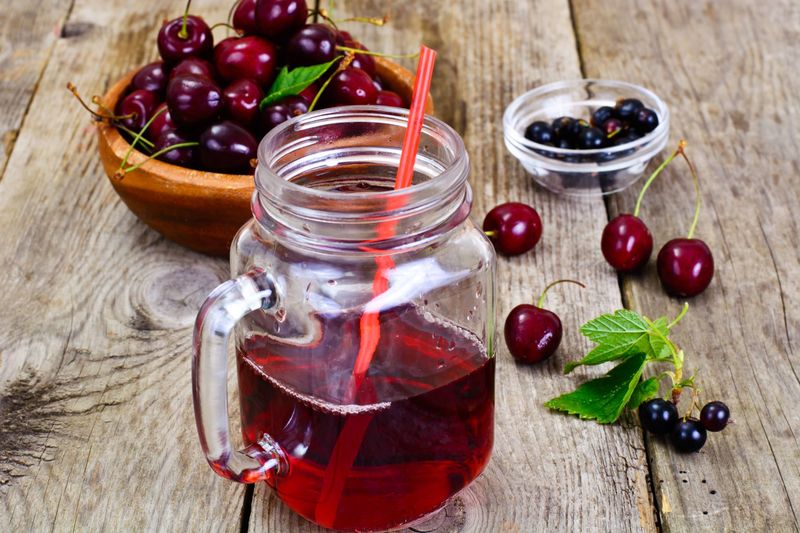
Tart cherries contain powerful compounds that fight inflammation naturally. Athletes and people with arthritis particularly benefit from these effects, with studies showing reduced muscle soreness and joint pain after regular consumption. The natural melatonin content makes this ruby-red juice unique among beverages, potentially helping improve sleep quality and duration.
Unlike sleeping pills, it provides this benefit without morning grogginess or dependency issues. Choose unsweetened varieties to avoid added sugars, as the natural tart flavor is part of what makes it effective. A small 4-ounce serving before bedtime may help you fall asleep faster while fighting inflammation as you rest.
21. Peppermint Tea
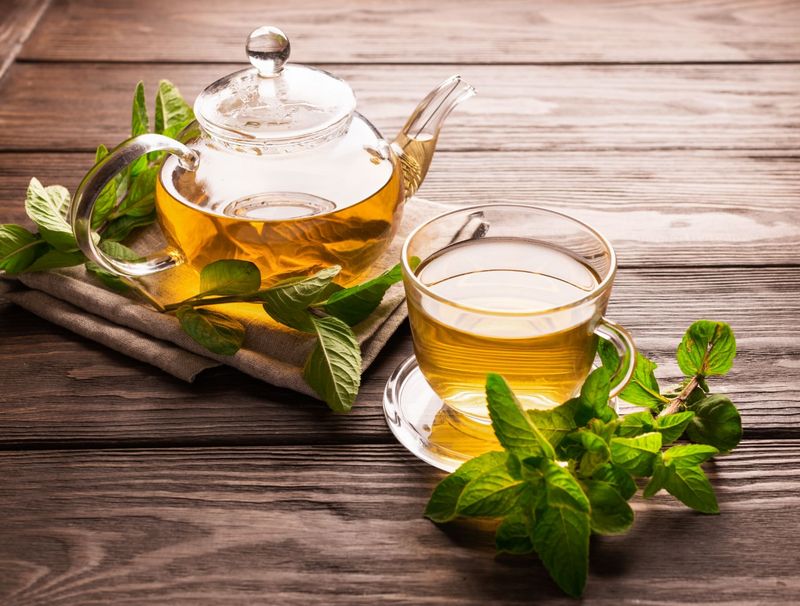
Peppermint tea is a powerhouse herbal remedy that soothes the digestive system with every sip. Its natural menthol content helps relax the muscles of the gastrointestinal tract, easing bloating, cramping, and indigestion. Beyond digestion, peppermint’s cooling properties can also help relieve tension headaches and mild sinus discomfort. Caffeine-free and refreshing, it’s a smart choice any time of day—especially after meals or during moments of stomach unease. Unlike over-the-counter digestive aids, peppermint tea offers gentle, side effect–free relief while doubling as a calming ritual. Keep it on hand for a natural, effective way to support your gut and head.
22. Beet Juice
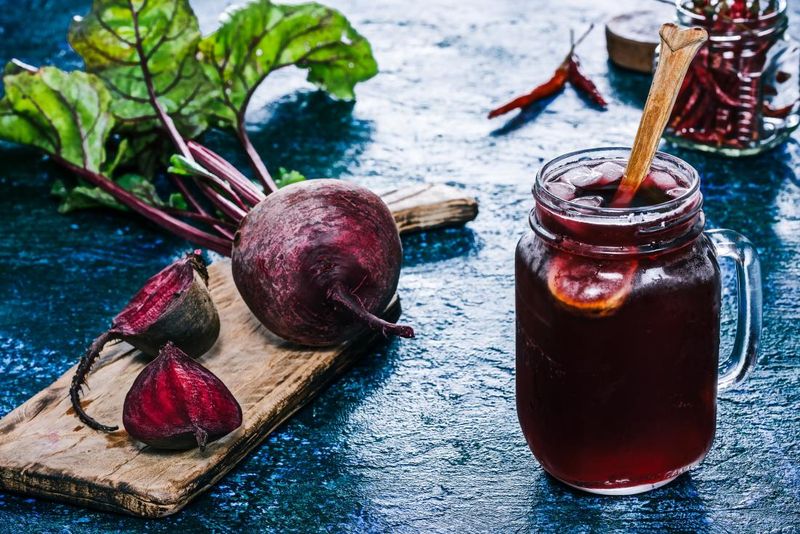
Beet juice stands out for its ability to enhance blood flow throughout your body. The natural nitrates convert to nitric oxide, which helps blood vessels dilate and improves oxygen delivery to muscles and organs. Athletes prize this crimson beverage for its performance-enhancing effects, with studies showing improved endurance and lower oxygen cost during exercise.
The benefits extend beyond sports—research indicates beet juice may help lower blood pressure by 3-10 points in just a few hours. Start with small amounts (2-4 ounces) mixed with other juices if you find the earthy flavor challenging. Your body will thank you for the boost in circulation and cellular energy production.
Leave a comment